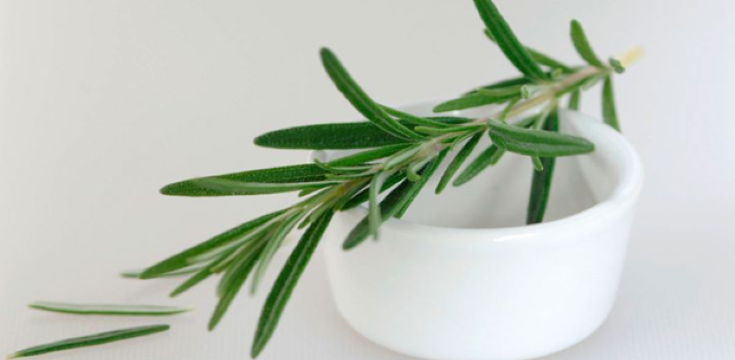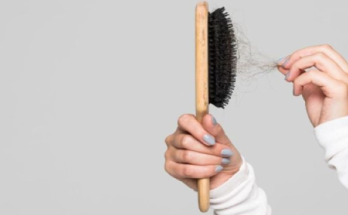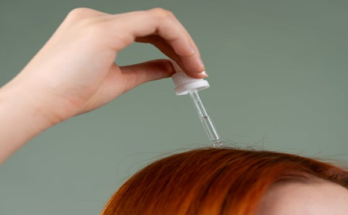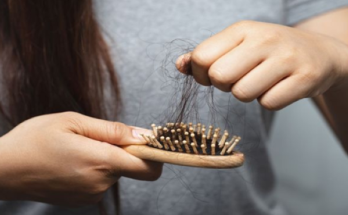There is no shortage of tips on social media for how to get healthier-looking locks. Some influencers claim that applying plant extracts to your scalp and hair strands can improve hair health and contribute to growth and shine. Many online clips depict people showing off their shiny, healthy, long locks, attributing their hair health to this simple recipe of boiled water and rosemary leaves.
But while rosemary water may have some anecdotal benefits for improved hair growth and shine, there is little clear scientific evidence or long-term research to prove its efficacy for all hair types or hair loss conditions. And using social media for hair-care advice, as opposed to consulting a board-certified dermatologist, isn’t advisable.
Rosemary and Hair Growth: What the Research Says
Some studies suggest rosemary may help promote hair growth. For example, rosemary oil is as effective as 2% minoxidil, a common hair loss treatment, after six months of use. Additionally, rosemary leaf extract has shown promise in supporting hair regrowth in individuals with androgenetic alopecia, a common form of hair loss in both men and women.
Understanding Rosemary Oil vs. Rosemary Water
Rosemary essential oil is extracted through steam distillation, a process that preserves the plant’s active compounds without overheating or burning them. A by-product of this process is rosemary hydrosol (also known as rosemary water), which is less concentrated but still contains some of the beneficial properties of the essential oil.
Quality and Safety Matter
The effectiveness of rosemary products depends heavily on the quality of the ingredients. Oils or waters should be organic or wildcrafted and sourced from reputable suppliers. Even with high-quality essential oils, dermatologist Dr. Henry notes that more research is needed to confirm a direct link between rosemary oil and hair growth.
Because essential oils are highly concentrated, applying them directly to the skin can cause irritation or allergic reactions. Always dilute rosemary oil with a carrier oil (like jojoba or coconut oil) before topical use. And before trying any essential oil-based treatments, DIY or otherwise, consult with a healthcare provider, especially if you have sensitive skin or underlying scalp conditions.
Rosemary for Scalp Health
A healthy scalp is essential for healthy hair, and rosemary oil may support scalp health in a few ways. It has natural antifungal and antibacterial properties, which could help reduce dandruff and other scalp issues. Some users also report less scalp itching compared to those using minoxidil. However, these effects have not been widely studied, and again, most existing research focuses on the oil, not rosemary water.
Rosemary and Hair Shine
There’s no scientific research confirming that rosemary oil or water improves hair shine. Anecdotally, some users report a temporary boost in shine or a smoother appearance after using rosemary oil, but results vary based on hair type and condition. Any shine-enhancing effect is likely short-term and cosmetic.
How to Make and Use Rosemary Water
- Start by adding 5 cups of water and 5 sprigs of rosemary (1 sprig for every cup of water) to a pot over medium-high heat.
- Once the water is boiling, you are going to leave it for 15 minutes.
- Then, turn off the heat and let the mixture sit in the pot for 25 minutes until it has a pinkish-reddish hue.
- Next, strain the finished product into a bottle, removing the rosemary twigs.
- The solution can be refrigerated and used for one to two weeks if stored properly. As for how to use it, pour it over the head, saturating the roots and scalp, or spray it on. Use as a last step rinse in the shower hair-care routine.
Follow these steps to do a patch test at home.
- Apply a quarter-size amount of the product or DIY water to an area of skin where it’s less likely to be rubbed up or washed away.
- Leave it on your skin for as long as the intended use or the instructions advise.
- For example, if you’re looking to use rosemary water as the last step of your shampooing routine, let it absorb for a minute or two before rinsing it out.
- Watch for signs of irritation, such as redness or itching.
- If you experience any discomfort, immediately wash it off and stop using it.
Before trying anything new, whether it’s a new product or DIY potion like rosemary water, it’s important to consult a certified aromatherapist, integrative doctor, or dermatologist for guidance. This is especially true if you have specific hair or scalp concerns or sensitivities.
While rosemary oil has been associated with certain hair-related benefits, the scientific evidence supporting its effectiveness is limited. And there is no scientific evidence of rosemary water’s impact on hair health. It may have some positive anecdotal effects on scalp health, hair growth, and the appearance of hair.
But results may vary, and it’s important to consider any allergies or negative reactions before you use it. If you’re concerned about hair loss or any changes to your hair or scalp, consider speaking with a dermatologist. They can recommend evidence-backed treatments to promote growth.




